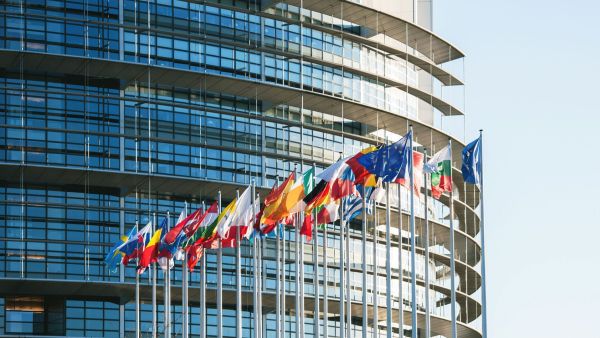Today, the European Parliament, under its lead negotiator S&D MEP Irene Tinagli, reached an agreement with EU governments on developing safe secondary markets for non-performing loans, facilitating a rapid deconsolidation from banks’ balance sheets while encouraging the application of forbearance measures that allow the borrowers to renegotiate or refinance their loans. As the economic fall-out of the Covid-19 pandemic is heavily hitting livelihoods and businesses across Europe, non-performing loans are expected to increase. This could undermine the ability of banks to lend to companies and households, thus jeopardising a speedy recovery. Introducing common rules for the activity of credit servicers and credit purchasers, as well as adequate forbearance measures for borrowers with payment difficulties, is a key element in this respect. During the negotiations, the S&D Group managed to significantly improve the new rules, especially by restricting the scope to non-performing loans only, and introducing stricter requirements for credit services and better protection for debtors.
S&D MEP Irene Tinagli, chair of the economic and monetary affairs committee and the Parliament’s negotiator on non-performing loans, said:
“Today’s agreement lays the foundation for a real, efficient and well-regulated European secondary market for non-performing loans. This step must go hand in hand with all possible efforts by creditors to make credit performing again, as well as the highest possible level of protection for borrowers. With this Directive, we introduce measures that favour the renegotiation or refinancing of the loan, so that borrowers with payment difficulties could benefit from better conditions and more time to fulfil their obligation. These measures not only protect the debtors, but would also reduce the losses for the creditor, especially compared to the cost of selling credit on the secondary market. As the economy is still suffering from the consequences of the Covid-19 pandemic, we cannot risk jeopardising the recovery with decisions that penalise households and firms.
“The S&D Group’s main objective for the negotiations was to better protect debtors. Under the rules agreed today, debtors will continue to enjoy the same rights and the same level of protection guaranteed by their original contract, even after the sale of their impaired credit to a new creditor. We also managed to include clear codes of conduct for services and purchasers in relations with debtors, and clear new disclosure obligations for debt collection activities. Furthermore, before selling the loan, creditors will always have to perform a debtor assessment that takes into account the individual circumstances of the consumer, the consumer’s interests, rights and ability to repay. With these measures we ensure that banks make every possible effort to help the borrower to be in a position to pay off their credit.”
Note to the editor:
A non-performing loan (NPL) is a loan on which a borrower has not made repayments. When a bank has too many non-performing loans on its balance sheet, it poses cash flow problems for the banks and thus these bad loans create obstacles for good credit to be given.
This non-performing loans secondary markets directive aims to introduce common rules for the activity of credit servicers and credit purchasers. The rules on the credit purchasing and servicing are currently very different among EU countries, ranging from very liberal approaches to more prudential ones, while some EU countries do not even have a regulation. This directive is another building block of the comprehensive Non-Performing Loans reduction strategy set out in the Council Action Plan in July 2017 and follows previous steps that strengthened supervision and introduced a backstop for prudential provisions. The agreement reached today still needs to be approved by the full plenary of the European Parliament.











